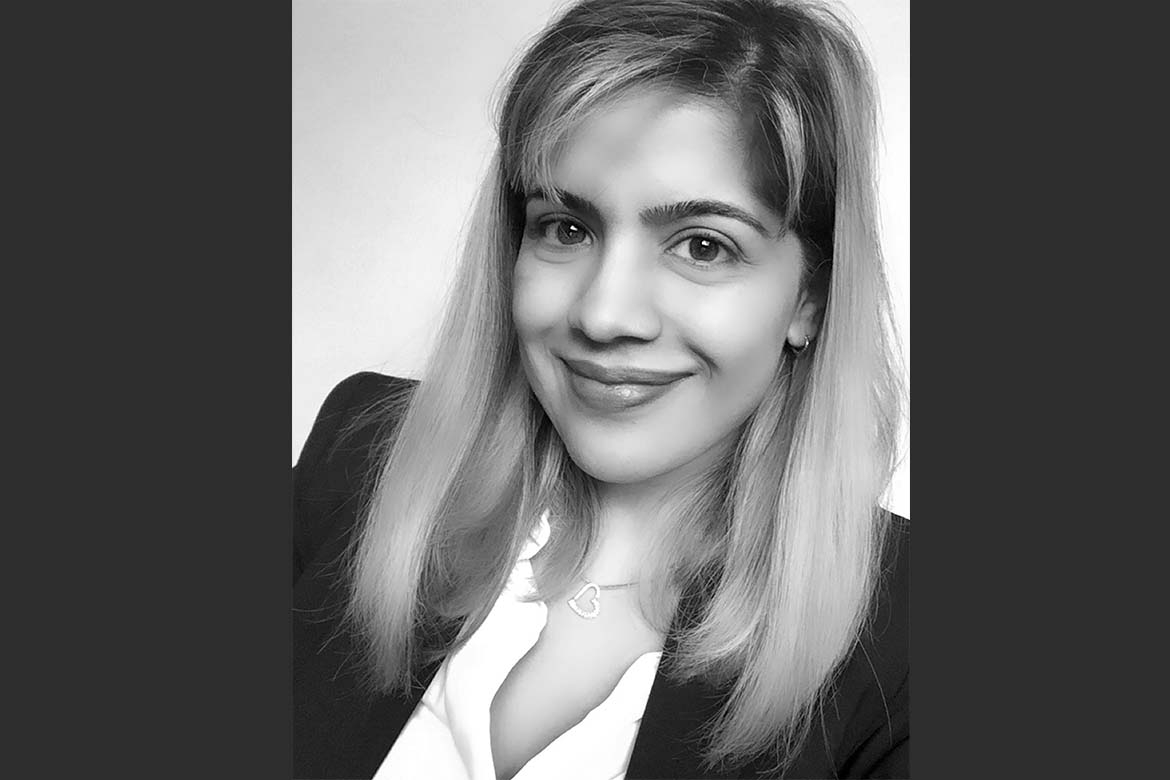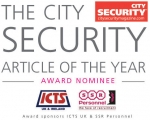Javeria Malik – Global Security Advisor ActionAid International
This article has been nominated for the City Security magazine Article of the Year Award. You can vote for this article or click here to find out more.
Javeria Malik – Global Security Advisor ActionAid International, responds to a range of questions outlining the current international challenges facing security – in particular Non-governmental Organisation (NGOs) – and her strategic approach, and shares her reasons for working in security.
In your view, what are the key international challenges that can impact security?
Javeria Malik – Global Security Advisor ActionAid International: We are living in difficult times. The world is witnessing a rise of right-wing populism, extremism, political and ideological conflicts, climate-related disasters as well as economic turmoil. Protracted wars and conflict, civil and political unrest, and natural calamities induced by climate change are causing large scale migrations of people, both from rural to urban, or across the national borders, which is systematically disrupting the very social fabric and sense of community as we know it.
Racism, sexism and misogyny have found a new and energised voice, which is both alarming and dangerous for human rights in general and women’s rights in particular. Unemployment, poverty and inequality are deepening, and these are only some of the challenges that define the context in which many non-governmental, humanitarian and human rights organisations have to work.
However, in my view, the above factors have also led to a renewed interest in holding constructive dialogues and deep reflections, even introspection, in finding solutions. Which is where the role of the NGOs, social movements and the larger civil society becomes relevant and even critical.
How can the security sector in general respond to these challenges?
Javeria Malik – Global Security Advisor ActionAid International: When it comes to managing staff security, which is what my role entails, security managers can no longer just focus on the technical and service part of security such as travel procedures, incident reporting, crisis handling and workplace safety, but we need to really connect to the context in which our policies and procedures are going to be implemented. The security manager’s role, in my view, is expanding beyond the traditional boundaries. We are required to wear several hats now –political analyst, project manager and of course conflict resolver and relationship manager. This is especially true if one is working in a global organisation that operates in diverse contexts and employs staff from a variety of cultural backgrounds and social associations. A successful security model in today’s global context is one that acknowledges and makes use of this diversity.
And, in particular, how can NGOs respond?
Javeria Malik – Global Security Advisor ActionAid International: For NGOs to have an agile and effective security management structure, they must adhere to the following principles:
Security must be inclusive – not just in letter but in spirt and practice. Gender, sexual orientation, physical capability, age, health, ethnicity and other factors must get special attention as an inherent part of risk management.
Value for money – NGO funding, grants and financial contribution is mainly to help those in need. So, security managers need to adopt novel ways of maximising impact of the money spent. At the same time, we cannot undermine the importance of allocating sufficient funds for security, since those helping others must be safe themselves in order for the work to continue and this applies not just to staff, our key assets, but to property, processes, reputation and information.
The old adage ‘safety in numbers’ holds true for NGO security work too. We need to work with others, our implementing partners, allies in mission, social movements, people’s groups, women’s groups and social activists, which requires a new type of skill set that enables engagement, relationship building and mutual learning. And we can no longer have the luxury to work with like-minded organisations alone; we must even engage with those who oppose our work in order to foster convergences and aid far-reaching acceptance.
How should the security strategy for NGOs adapt to the changing context?
Javeria Malik – Global Security Advisor ActionAid International: In my view, there is a need to think more practically, creatively and collaboratively. Security strategies and solutions that worked in the near past may not work today, and what works in one context may be counter-productive or dangerous in another. I am not implying that the security sector is oblivious to this reality. In fact, we see a lot of good things happening and a number of innovations and out-of-box ideas being generated and implemented.
I still see the security sector working in isolation, which is a big challenge. Security, to me, is not something that should be treated as a specialty. It should be a common skill much like using a computer or a smartphone. Everyone should know how to do basic security management, and only then can we mainstream good security practices in our day-to-day work.
This is especially critical for the non-profit, development and humanitarian sector where often times headquarter security specialists are situated thousands of miles away from the frontline staff that are dealing with ‘situations’ using their local knowledge and judgement. We need to invest in building that frontline capacity because it is our field-based staff whose security consciousness and risk management skills will determine how safely and successfully we are able to carry out our work.
Organisations and companies can hire the best skilled and most experienced security manager only to be based in the HQ, but unless knowledge and skill are decentralised at the grass-root level, we can’t be 100% confident about our corporate security.
What does this mean on a more practical note?
Javeria Malik – Global Security Advisor ActionAid International: NGOs should invest in developing in-house capability in terms of customised training programmes and immersive learning opportunities for security focal persons, managers and staff working in various contexts. For example, it’s necessary for staff working in countries like Iraq, Afghanistan, Northern Nigeria, Syria, Yemen etc. to have the practical skills to handle security ramifications of an ongoing conflict, including direct attacks and possible exposure to arms.
For someone working in Cambodia, Pakistan, Uganda, Zambia, Tanzania, or other countries facing a restrictive civic space, it’s essential to have the know-how and tools to risk-assess NGO activities in the context of suppressive legislations and ‘zealous’ authorities driven by a nationalist agenda. Likewise, basic capability to avoid/minimise the risk of crime and accidents, as well as the knowledge and training about appropriate response to such incidents is equally crucial.
Lastly, NGO staff working with communities during and after natural hazards and calamities, such as the recent floods in India or earthquake in Indonesia, must be conversant with safeguarding and health and safety procedures and should be adequately trained on those. This may sound like a huge undertaking and it probably is in terms of time and resource commitment, but we need to start somewhere.
Here I would like to acknowledge International NGO security platforms such as the European Interagency Security Forum (EISF) that is doing a commendable job bringing the sector together to learn from each other’s experience and pool knowledge and resources. Under the EISF banner, we meet twice a year with our fellow NGO security managers to analyse current and emerging security issues and support research and publications in various areas related to security risk management. I recommend that NGOs should endeavour to participate in such forums for wider networking, learning and gaining inspiration from the good work happening round us.
What is your focus for the next year?
Javeria Malik – Global Security Advisor ActionAid International: I plan to initiate a robust capacity and skill development programme for our staff to help them gain at least a minimum skillset to risk-assess the work that they are doing and develop capabilities to evade and minimise operational risks. I feel every activist, human rights defender and frontline staff is a de facto security manager because of the very nature of their work. Personally, I have learnt more about practical security risk from non-security people working on the ground and facing risks every day than some so-called security experts that rely heavily on theory with little relevance to real life experiences.
What is your advice for those moving to or already in the security sector?
Javeria Malik – Global Security Advisor ActionAid International: Be ready to jump into action whenever and wherever you might be. I have personally attended to critical incidents while on a flight, in the middle of the night and once as I was about to cut my birthday cake! It’s almost like a doctor on call.
Be reachable. Sometimes it’s not just security advice or policy guidance that is needed at times, people just want to vent and share their risk perceptions with a confidante, someone who will hear them out with empathy and sound mind.
Stay informed. You don’t have to be a know-it-all, but taking interest in the world around you greatly helps.
And lastly, know how to balance your own work/life. Look after your personal wellbeing and health, get sufficient sleep and rest, indulge in social and family life, but at the end of the day, know that sometimes your advice, support and an empathetic ear can save people’s lives. There is a higher purpose and that will give you a lot of fulfilment and sense of achievement.
What led you to your current role in security?
Javeria Malik – Global Security Advisor ActionAid International: I was born and raised in Pakistan, where being a career-oriented and progressive, liberal woman had its own challenges. Risk assessment and risk management was part of my life, something I did almost instinctively. I am a journalist by training and during my media and communications work as I travelled to high-risk areas, I got to improve and practise my risk management skills more consciously.
However, the greatest professional shift came when ActionAid hired me to lead their federation-wide security management work from a global perspective – from global security policy, protocols and guidelines to building a decentralised community of practice of the security focal persons. That was a turning point for me as well as for the federation, one that offered a lot of challenges and incredible opportunities.
I think the two personal attributes that have helped me embrace and overcome challenges are hard work and self-confidence, believing that human beings are capable of great things if they put their minds to it. I also believe that if you are happy and content, you exude positive energy in your work and relationships.
I look after myself and make time to live life to the fullest, you know they say, work hard and play hard… well that’s me! I am fortunate that my work involves a lot of travel, something that I really enjoy. It gives me a chance to explore new cultures, make new friends and just appreciate the diversity of life. Other than that, I love nature and going on safaris, and, of course, reading and occasional movies!




